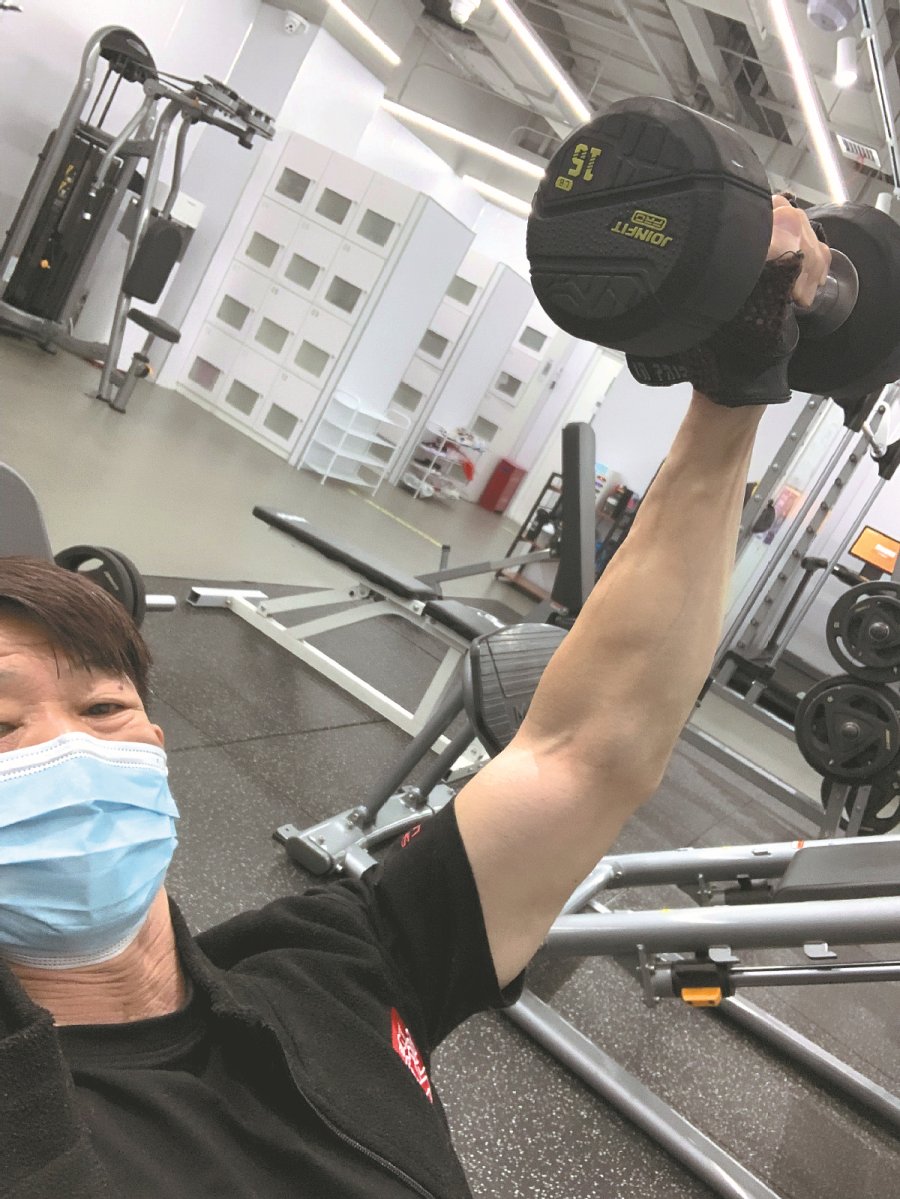April 21, 2023
BEIJING – New doors open as life of leisure fast loses its appeal
Retirees in China are increasingly forsaking a life of leisure to pursue second careers close to their hearts.
They are discovering new interests — in particular, passing on their skills to young people — and also escaping boredom after finding it hard to remain idle.
It did not take long for Beijing resident Li Zhijie, who is in his 60s, to realize that life in retirement, which is envied by many, was not for him.
He had few domestic matters to attend to, and little interest in engaging in casual conversation with other retirees at his residential community.
“I felt as if a piece of my life was missing and that I needed a reason to get out of bed in the morning,” Li said.
Before retiring about two years ago, he worked as a private tutor at local gyms for 10 years.
“I thought I needed to make a living to support my family back then,” Li said.
However, when his retirement benefits eventually came through and he no longer had to worry too much about money, he found that he missed the workplace.
“Many people my age may feel that they have finally arrived at the point where they no longer have to work and that they have sufficient time and money to chill out, but I took this as a sign of leaving society. I just didn’t want it,” he said.
As Li became increasingly bored in the months after retirement, he was convinced that he needed to find work he could enjoy.
“I figured it didn’t have to be something too challenging. As long as I could do the work, I would no longer have that empty feeling, and every day would be meaningful,” he said.
Although his wife disagreed with his decision, Li opted to return to an occupation with which he had become fully accustomed over the years. In 2020, he became a group class trainer at Hilefit, a sports technology company.
“This is what I can do and is what I am good at,” he said.
A decade of experience enabled him to land the job quickly.
“The company saw that I am in good physical condition and that I can design courses and give exercise instructions, so I got the trainer position,” he said.

Li Zhijie builds his muscles at a gym in Beijing. CHINA DAILY
The job opened a new chapter in his life. Li resumed his highly disciplined routine by working out regularly at parks and gyms, while acquiring the skills needed for Body Combat, a high-energy workout inspired by martial arts.
“Every day, I arrive at the gym on time, prepare the sound system, change into my workout clothes, set up the equipment, and then begin instruction,” he said.
Those taking the group class are mostly young people, and Li enjoys interacting with them after the workout sessions.
Some of the students have become friends with Li, affectionately referring to him as “Uncle Jie”.
“It feels fulfilling and rewarding when we finish a class and take a group photo together, all of us drenched in sweat. The students say ‘thank you, coach’ while they applaud me. At moments like these, I realize my life is truly worthwhile,” Li said.
He also takes special pride in the fact that some of his new students are amazed to learn his age and find that he has better stamina than them.
He currently takes two to four classes a day, each lasting one hour.
“I am very happy with my life now and feel fortunate that I can still do something worthwhile that I truly love,” he said.
Li believes this is the peak time of his life, even when compared to his younger days.
“My latest dream is to instruct young students — those born after 2010. If I can do this, it will be really cool and impressive,” Li said.

Shen and his wife pose in front of the cafe he owns in Xianyang, Shaanxi province. CHINA DAILY
Coffee culture
Like Li, a man in Xianyang, Shaanxi province, who wanted to be named only as Shen, has been enjoying a new life since retiring about three years ago.
Shen, who is in his 60s, now takes on a number of roles at the cafe he owns in the city, which he opened one year before retirement.
“I enjoy hosting various small events, serving the customers and making coffee for them,” he said, adding that the job is not just about making money, but has given him a new interest after retirement.
Shen said he cannot stay idle, as he has been active in various fields, including home renovation, advertising and the electronic products trade.
In 2008, he launched out on his own — traveling to countries such as Thailand and Myanmar to sell light industrial products produced in coastal areas of China, such as Guangdong and Fujian provinces.
During his time in Southeast Asia, Shen became acquainted with coffee culture.
He said that when he was in Yangon and Mandalay in Myanmar, people spoke to him about working in coffee shops.
“At first, I didn’t like the bitter taste of coffee, but with the idea of doing business with others, I slowly began to accept it, and after a while, it grew on me,” he said.
Going to coffee shops also gave him the chance to relax and overcome his homesickness.
“Visiting a cafe in the afternoon allowed me to recharge my batteries at a time when I was alone and far from home. Somehow, the bitterness of the coffee, along with the cafe atmosphere, helped comfort me,” he said.
After returning to China in 2011, Shen missed the coffee culture of Southeast Asia, so he decided to buy numerous coffee-making utensils and use his free time learning to make the beverage.
It was not long before he opened a small “coffee corner” on his balcony to entertain friends. To Shen’s surprise, everyone spoke highly of his efforts and gave his coffee positive reviews.
He then thought about opening a coffee shop, but didn’t act on his idea immediately.
“I was afraid of losing money. My home city is not like Beijing and Shanghai, and I didn’t know the local coffee market, or if young people like the drink,” Shen said, adding that he still had to make a living to support his family.
He decided on something “more reliable” by running a copy and printing shop outside a local school for several years.
As the family finances improved, especially when his retirement benefits plan started, Shen became more determined to open a cafe.

Shen explains his coffee-making process to judges at a national coffee brewing competition in Xi’an, Shaanxi, last year. CHINA DAILY
In 2019, with the support of his wife and daughter, he put his plan into action and started the cafe on Zhongshan Street, Xianyang.
“It was not an easy decision, as I was worried about having no customers, failing to make a profit, and ultimately sustaining the business. Yet, I knew I had to do it, otherwise it would be a big regret,” he said.
The decision proved to be one of the best he has ever made.
Shen said the greatest reward the cafe has brought him is the chance to meet young people. “In a sense, it has given me the opportunity to rejoin society after retirement,” he said.
He added that he and his wife enjoy listening to young customers discussing work and life over coffee at his cafe.
“They make me feel younger and forget my age,” Shen said, adding that it is good to see how some of his customers meet and get to know each other, before falling in love and getting married. Sometimes, he even helps arrange marriage proposals at his cafe.
Interacting with his customers has enabled Shen to gain a better understanding of young people’s lifestyles.
“I can now see things from their perspective, and this has stopped me intervening with my daughter’s life by imposing my views on her, as I used to do,” he said.
When friends his age advised Shen to stop working and enjoy retirement by taking up activities such as walking, playing chess and mahjong, he politely declined.
“Isn’t life about doing something, and if you’re lucky, it’s something that brings you pleasure,” he said.
“I now love coffee, and I finally have plenty of time after retirement, so why not make a go of it?”

Li Zhijie (center) and his students pose for Body Combat, a high-energy workout inspired by martial arts. CHINA DAILY
Young seniors
As the numbers of China’s aging population continue to grow, the ranks of young seniors (those aged 60-69) are also rising.
Data from the seventh national census taken in May 2021 show the number of people who were 60 or older in China in 2020 stood at 264.02 million, of which 147.39 million were in the 60-69 age bracket, accounting for 55.83 percent of the elderly population.
A recent report by the recruitment portal 51job said 68 percent of surveyed retirees have expressed a stronger willingness to continue working.
The portal also conducted a survey among retirees returning to the job market. Nearly 47 percent said they wanted to return to work to realize their personal and social value, while 19 percent looked forward to pursuing better career development by using their skills. Some 34 percent of the respondents said that they wanted to work to continue supporting their family or to meet higher-level consumption needs.
Boss Zhipin, another Chinese jobs platform, reported that last year the number of applicants it received from people older than 55 rose by 27 percent year-on-year, and the number of job offerings open to retirees rose by 33 percent.
In 2021, the Communist Party of China Central Committee and the State Council proposed improving policies and measures, such as employment, volunteer services, and community governance, to fully tap the role of young seniors. In fields such as schools, hospitals, community household services and public service management, efforts should be made to explore flexible employment models suitable for the elderly, according to opinions gathered by the two bodies.

Shen makes coffee at his cafe. CHINA DAILY
In addition, local governments are being encouraged to establish talent information databases for the elderly, and to provide job referrals, vocational skills training and innovation and entrepreneurship guidance services for seniors who are willing to work.
Dang Junwu, deputy director of the China Research Center on Aging, said it is necessary to rebuild a labor and employment system that meets the requirements of an aging society, so that both the young and the elderly can find development opportunities.
He believes that while ensuring that young people have more job opportunities, it is important to create conditions for healthy young seniors to play their roles. Specific measures should also be introduced, including providing more job opportunities, improving the employment environment, and perfecting legal guarantees for employing seniors again, Dang said.
Shen, from Xianyang, believes there are many advantages to starting a business after retirement.
“For example, the elderly are less impulsive and they consider problems more comprehensively. They also have a stronger focus,” he said.
Shen thinks that entrepreneurship is not exclusively for young people, and that being 60 does not necessarily mean “being over the hill”.
“There is still a future after 60, and we still have plenty of time before we reach 70 and 80,” he said.


